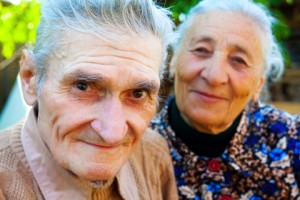 On 1 October the World Day of Older Persons is celebrated. This was instituted in 1990 by the United Nations
On 1 October the World Day of Older Persons is celebrated. This was instituted in 1990 by the United Nations
For the occasion we publish the message of H.E. Msgr. Zygmunt Zimowski, the President of the Pontifical Council for Health Care Workers (for Health Pastoral Care).
Tomorrow, 2 October 2013, Msgr. Zimowski will lead a pilgrimage to Bucchianico of his Pontifical Council during the jubilee Year for the celebrations of the fourth centenary of the death of St. Camillus.
Message of H.E. Msgr. Zygmunt Zimowski,
the President of the Pontifical Council for Health Care Workers (for Health Pastoral Care), on the Occasion of the International Day of Older Persons
1 October 2013
The Value of the Life of an Elderly Person
Dear brothers and sisters who are already advanced in years, dear family relatives and personnel of the socio/health-care world who are their neighbours,
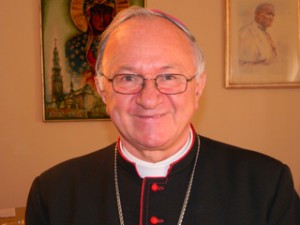 On the occasion of the International Day of Older Persons, which will be celebrated next Tuesday, 1 October, I wish to launch anew the appeals made by His Holiness Pope Francis that everyone should be committed to having greater concern for elderly people and to defending their right to a life of dignity and to active participation in the community and society.
On the occasion of the International Day of Older Persons, which will be celebrated next Tuesday, 1 October, I wish to launch anew the appeals made by His Holiness Pope Francis that everyone should be committed to having greater concern for elderly people and to defending their right to a life of dignity and to active participation in the community and society.
This international day is an important event that is destined to acquire increasing relevance, not least because of the more than 600 million elderly people that are now estimated to live on the planet and the steady ageing of the world’s population which, within ten years, could have over a thousand million elderly people.
Thus all of us, Christians and men and women of good will, are called to cooperate everywhere to achieve a more human and also fairer and more just society, enriched, as well, by the real participation of those who can be seen as ‘not useful’ or even ‘a burden’, but who, instead, can make their own contributions because of the experience and wisdom that they have acquired during the journey of life.
‘We are now faced with a philosophy and a practice which exclude the two ends of life that are most full of promise for peoples’, Pope Francis emphasised on 25 July last during his meeting with young people from Argentina at the Cathedral of St. Sebastian in Rio de Janeiro. ‘You could easily think’, the Pope went on, ‘there is a kind of hidden euthanasia, that is, we don’t take care of the elderly; but there is also a cultural euthanasia, because we don’t allow them to speak, we don’t allow them to act’. Young people are equally marginalised: this is a civilisation that ‘has led us to exclude the two peaks that make up our future’. ‘As for the young, they must emerge, they must assert themselves’ and ‘the elderly must open their mouths and teach us! Pass on to us the wisdom of the peoples!’
In many of the so-termed ‘rich’ countries ensuring that elderly people are and remain co-protagonists of social life involves, in addition, addressing the reality of the increase in longevity, which is due to various factors, amongst which increased knowledge in the medical and scientific fields. This is an increase that cannot, therefore, be only a matter of survival. But which, instead, should be appreciated in a respectful and appropriate way, starting from the wishes and the characteristics of elderly people themselves and the contexts to which they belong.
‘It is beautiful to be old’, exclaimed Pope Benedict XVI on a visit to a home for the elderly on 12 November 2012 .‘At every phase of life’, he went on, ‘it is necessary to be able to discover the presence and blessing of the Lord and the riches they bring. We must never let ourselves be imprisoned by sorrow! We have received the gift of longevity. Living is beautiful even at our age, despite some “aches and pains” and a few limitations. In our faces may there always be the joy of feeling loved by God and not sadness!’.
Nevertheless, people who are advanced in years can at times run the risk of being neglected even in the Church community. Many years ago the Declaration of Toronto on the Rights and Treatment of the Elderly stated that although ‘elderly people have an opportunity to pray, to meditate and to grow in their spiritual lives, often they are not encouraged to develop their spirituality because of a lack of understanding of their problems’.
Today the situation has not changed very much. And yet ‘evangelising old age’ means discovering its intrinsic and original opportunities, its meanings, those values that can be actuated only during this stage of man’s journey. It is a true area for the Good News.
One does not evangelise a phase of life adding something to it from outside, nor by simply filling it with things to do. It is above all else a question of meanings, not of things or of activities.
Through solidarity between the young and the old one has a way of understanding how the Church is really a family of all the generations, where each person must truly feel at home, where the logic of profit and possessing does not rule, but the logic of free giving and of love. When during the years of old age life becomes frail, it never loses its value or its dignity: every person is willed, is loved by God; every person is important and necessary.
In this approach is located the value of a specific pastoral care that includes, first and foremost, communion between the generations as a fundamental element. Primary major help comes from the creation of a Church community that is fraternal, where the young and the elderly together turn to God, and where everyone is convinced that a conception of life based upon an exaggerated notion of efficiency is not adequate. One is dealing here, therefore, with fostering a culture of unity: unity between the generations as well, not seeing themselves being detached from one another; a vision of life that helps the new generations to grow, breathing every day this culture of unity, where every person makes an irreplaceable contribution.
In addition, one should engage in pastoral care of elderly people rather than for elderly people. A person of a certain age is not first and foremost an object of care and charitable pastoral attention, but, rather, a subject and a potential protagonist of pastoral action. The Blessed John Paul II, in his encyclical Christifideles Laici, stressed that ‘the Church calls and expects them [the elderly] to continue to exercise their mission in the apostolic and missionary life. This is not only a possibility for them, but it is their duty even in this time in their life when age itself provides opportunities in some specific and basic way’ (n. 48). ‘Their mission in the apostolic and missionary life’, he went on, is a task that involves ‘their determination to overcome the temptation of taking refuge in a nostalgia in a never-to-return past or fleeing from present responsibility because of difficulties encountered in a world of one novelty after another. They must always have a clear knowledge that one’s role in the Church and society does not stop at a certain age at all, but at such times knows only new ways of application’.
And as regards social care and health care, it is essential for this to be animated by deep concern for people, in communities that bring together not only elderly people but also professionals. A geriatric institution can allow the formation of new relationships and offer an opportunity to those within it to help each other and encourage each other, but all of this must be animated by love: because what is done or given without love is perceived by a person as humiliating. Special care, as already happens in many places – ones that are economically poor as well – should be devoted to religious assistance for elderly people who are not self-sufficient, not only in old people’s homes but also in their own homes, both by visiting them often and by valuing their lives and their suffering during the liturgy and common prayer. Religious assistance for elderly people should, indeed, be a commitment of the whole of the Christian community, in addition to being a special concern of voluntary work based on Christianity. It is in this spirit that the Pontifical Council for Health Care Workers is organising for 21-23 November next, in the Vatican, an international conference on ‘The Church at the Service of Sick Elderly People: Care for People with Neurodegenerative Pathologies’.
In the Christian way of thinking, indeed, old age is not the disappearance of life but its completion. Old age brings with it the synthesis of everything that has been learnt and experienced. The synthesis of how much has been suffered, has given rise to joy, and has been borne: ‘as in the finale of a great symphony, they return to the dominant themes of life for a powerful synthesis in sound’, as Pope John Paul II emphasised in his speech to the elderly given in Munich in Bavaria on 19 November 1980.
Life is a journey that can make one acquire profound wisdom, that wisdom cited by Pope Francis in his first Angelus, when he related: ‘And an elderly woman approached me, humble, very humble, and over eighty years old. I looked at her, and I said, “Grandmother” – because in our country that is how we address the elderly – do you want to make your confession?”. “Yes”, she said to me. “But if you have not sinned…”. And she said to me: “We all have sins…”. “But perhaps the Lord does not forgive them”. “The Lord forgives all things”, she said to me with conviction. “But how do you know, Madam?”. “If the Lord did not forgive everything, the world would not exist”’.
Dear brothers and sisters, above all those of you who are already advanced in years, I greet you with affection and cordiality and I ask you never to give way, to keep your nerves strong, in the awareness that you are testimony and riches for all of us and that every minute of your lives is valuable for us.
I entrust you to the protection of the Most Holy Virgin who, after the Annunciation, hurried to her elderly relative Elizabeth, to give help, to share her joy at the great works of the Lord, and to praise His infinite mercy.
The Vatican City, 29 September 2013
The Feast of the Archangels, St. Michael, St. Raphael, and St. Gabriel.



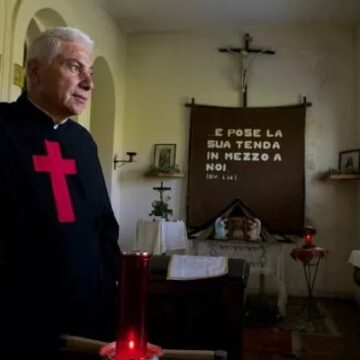

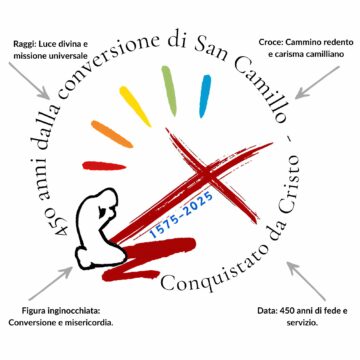


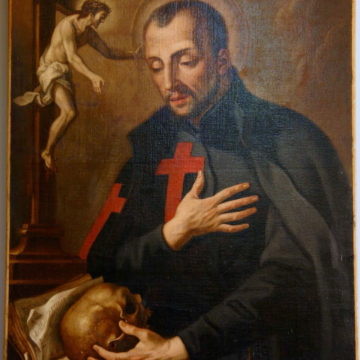


Camillians on Facebook
Camillians on Twitter
Camillians on Instagram